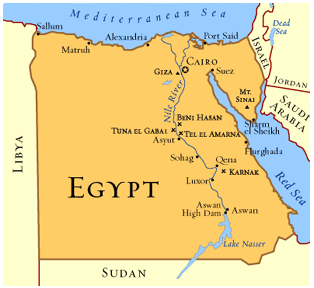Egyptian opposition gears up for presidential elections
 Cairo - Egypt's next presidential election is not scheduled until 2011, but opposition politicians say they are already preparing to fight to make sure an independent candidate succeeds President Hosny Mubarak.
Cairo - Egypt's next presidential election is not scheduled until 2011, but opposition politicians say they are already preparing to fight to make sure an independent candidate succeeds President Hosny Mubarak.
In recent weeks, supporters of the two men most often tipped to succeed Mubarak, who has been in office since 1981, have launched online campaigns to support their candidates.
Both are firmly identified with the current government: For years, many have speculated that Mubarak's son, Gamal, now the number-two man in the ruling National Democratic Party (NDP), is being groomed to take over.
The man most often suggested as an alternative, Omar Suleiman, is the head of Egypt's intelligence service.
Egypt's fractious opposition now hopes to come together in an effort to add other names to the mix.
A panel of secular opposition activists drawn from two coalitions, "Egyptians for Change," and the Kifaya ("Enough") coalition, say they are preparing court challenges to laws restricting the ability of independent candidates to run for president.
They say they will challenge Egypt's electoral laws on the grounds that they set "unfeasible" restrictions on would-be independent presidential candidates, in cases before the Supreme Administrative Court and the Supreme Constitutional Court.
But even should their court challenges prove successful, it is not clear who will run against Mubarak.
In the last election, in 2005, the Ghad Party's Ayman Nour was placed a distant second, winning only 7.3 per cent of the vote. Soon after, he was in prison on charges that he had falsified signatures in support of his candidacy.
Nour was released on health grounds in February, but remains barred from taking an active role in politics.
Leftist and Nasserist opposition activists say they have held frequent meetings in recent weeks to draw up a list of public figures and judges who could act as a caretaker president to preside over structural reforms they say would be necessary before truly democratic
elections could be held.
Topping their list is Mohammed ElBaradei, former director of the International Atomic Energy Agency (IAEA), said opposition journalist Abdel-Halim Qandil, the current head of the Kifaya coalition.
The Alliance of Egyptian Americans, a group of expatriate Egyptian opposition activists, has also encouraged ElBaradei to run, but the former IAEA head has maintained a studious silence on the question.
Other, perhaps more likely, candidates include a roster of senior judges who refused to certify the results of the 2005 elections, citing irregularities: Mahmoud al-Khudairi, Zakaria Abdel-Aziz and Hisham al-Bastawissi.
During the ensuing stand-off, crowds came into the streets in early 2006 to express their support for the judges. They were met by far larger crowds of riot police.
In compiling the list, Qandil said, the panel was looking for truly independent figures with good reputations.
"We are looking for someone neutral, with no political affiliations," he said. "The consensus is that any one of these figures will have to be willing to sacrifice and bear the losses he can expect to suffer for confronting the regime."
Of the four candidates, al-Khudairi, aged 69, has indicated he would be willing to accept their nomination.
"Rejecting this patriotic task would be a dereliction of my duty to the country," he said.
"So long as the term would be for a transitional period only, during which (my) role would be to implement political reforms and strengthen the values of democracy and freedom, then once I (leave the judiciary,) I accept this honour," he said.
But even should al-Khudairi or another candidate win the court challenges that would pave the way for his candidacy as an independent, some doubt whether he would be able to garner enough support to challenge the NDP's formidable political machine.
"No legal opposition party and no political force is capable of establishing an informal consensus on one candidate for the presidential elections," said Amr Shubaki, an analyst at the government-funded al-Ahram Centre for Political and Strategic Studies.
"These efforts will not achieve any results," he predicted. "Even if the opposition succeeds in coming to a consensus on one candidate, one, the ruling-party candidate will win ... The elections will be a sham, and there will be low turnout." (dpa)